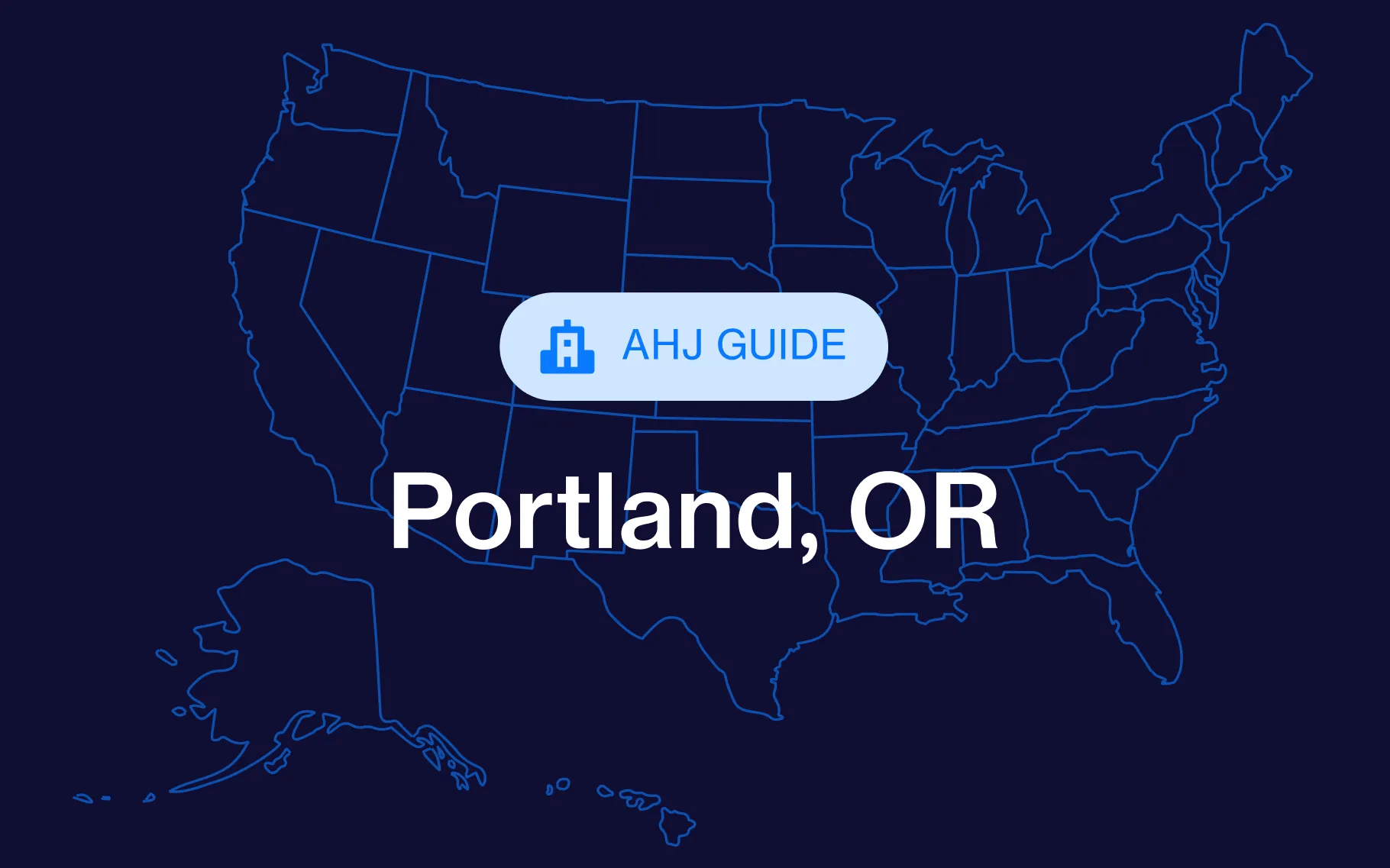Permitting in Oregon is governed by statewide codes but administered locally. The Oregon Building Codes Division (BCD) sets the framework, while cities and counties issue permits and oversee inspections.
For construction businesses, that means understanding both the state’s uniform requirements and the local procedures that determine how fast you can break ground.
Here, we’re outlining the essentials when permitting in Oregon — what projects need permits, who issues them, and how to navigate the process efficiently.
Who issues building permits in Oregon?
Building permits in Oregon are issued at the city or county level, under authority delegated by the state’s Building Codes Division.
- In Portland, the Bureau of Development Services (BDS) issues building, trade, and development permits.
- In Eugene, permitting is handled by the City of Eugene Planning and Development Department.
- In rural or unincorporated areas, permits are issued by the county — such as the Clackamas
- County Permitting Division or Multnomah County Land Use & Transportation.
When do you need a building permit in Oregon?
Under Oregon law, a permit is required for most new construction, alterations, and certain repairs.
Examples include:
- New residential or commercial buildings
- Additions, remodels, or structural changes
- Electrical, plumbing, and mechanical system installations or replacements
- Roof replacements, decks, garages, and accessory dwelling units (ADUs)
- Window, door, or siding replacements (when structural or energy code compliance is involved)
Some smaller projects are exempt — certain fences under 7 feet, small sheds under 200 square feet, or interior finish work like painting and flooring. Details are outlined in the Oregon Residential Structures Code Program.
Oregon building permit requirements
Most applications will include:
- Completed permit forms
- Construction drawings (site plan, floor plans, elevations, and structural details)
- Engineering calculations where structural changes apply
- Documentation for energy code compliance (Oregon enforces the Energy Efficiency Specialty Code)
- Trade licenses for contractors performing electrical, plumbing, or mechanical work
Cities like Portland require digital submittals through their DevHub portal, while some counties still allow paper applications.
Oregon building permit costs
Fees are calculated differently across jurisdictions, but most include:
- A base permit fee, often tied to project valuation
- Plan review fees
- A mandatory 12% state surcharge per ORS 455.210
- Additional surcharges for technology or specialized reviews
Here are some examples from some of Oregon’s biggest cities:
How to get a building permit in Oregon
Although each jurisdiction’s process looks slightly different, the steps are typically consistent statewide:
- Confirm whether your project requires a permit by reviewing local building department guidelines.
- Prepare construction documents with licensed architects or engineers when necessary.
- Submit your application online (e.g., through Portland DevHub) or in person at the local permit office.
- Wait for plan review by departments such as zoning, structural, fire, and energy.
- Respond to any correction requests or comments, then resubmit.
- Once approved, pay applicable fees and obtain your permit.
- Schedule inspections at required milestones to stay compliant.
Timelines vary widely. Simple trade permits may be issued same-day, while large commercial projects often take weeks or months.






